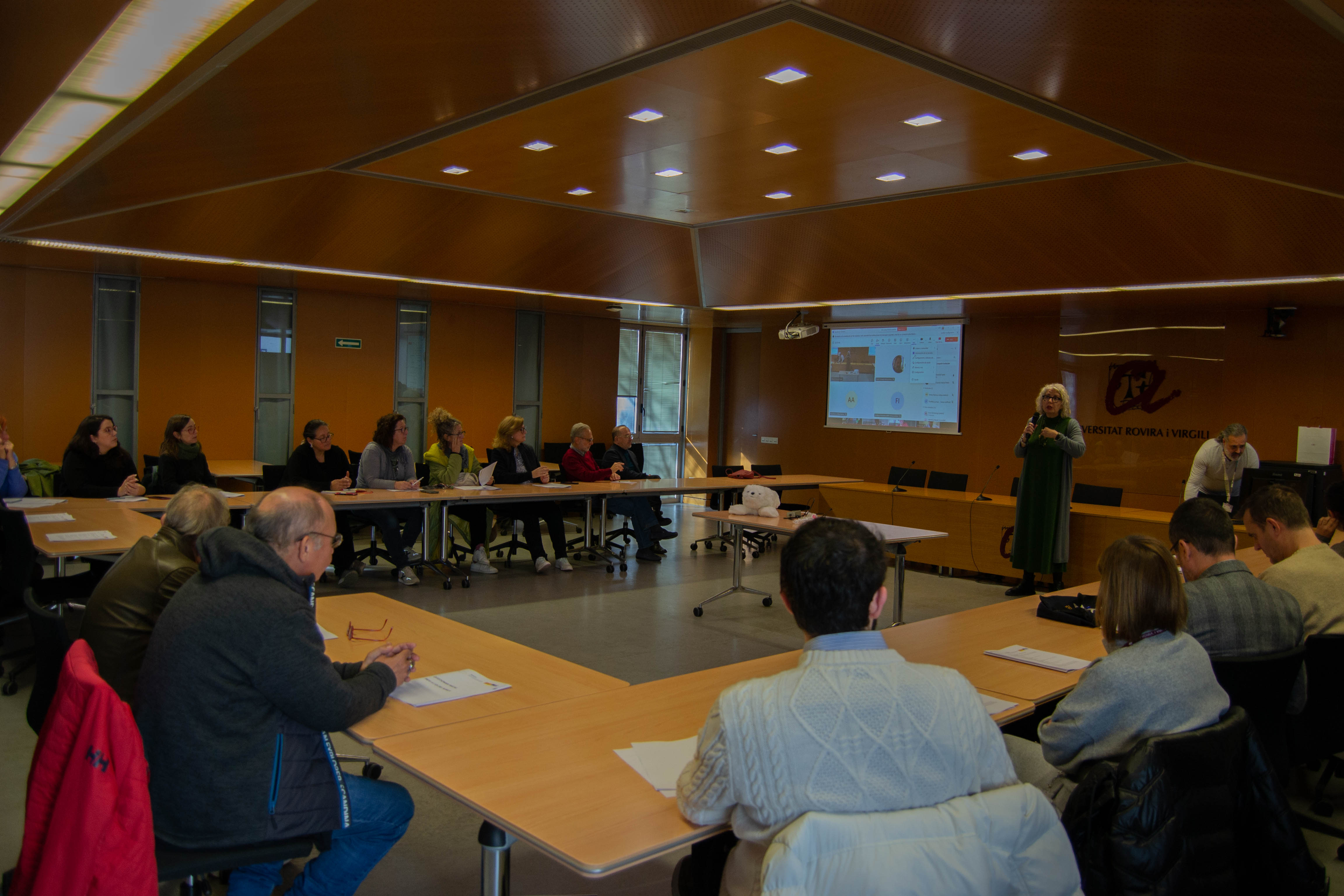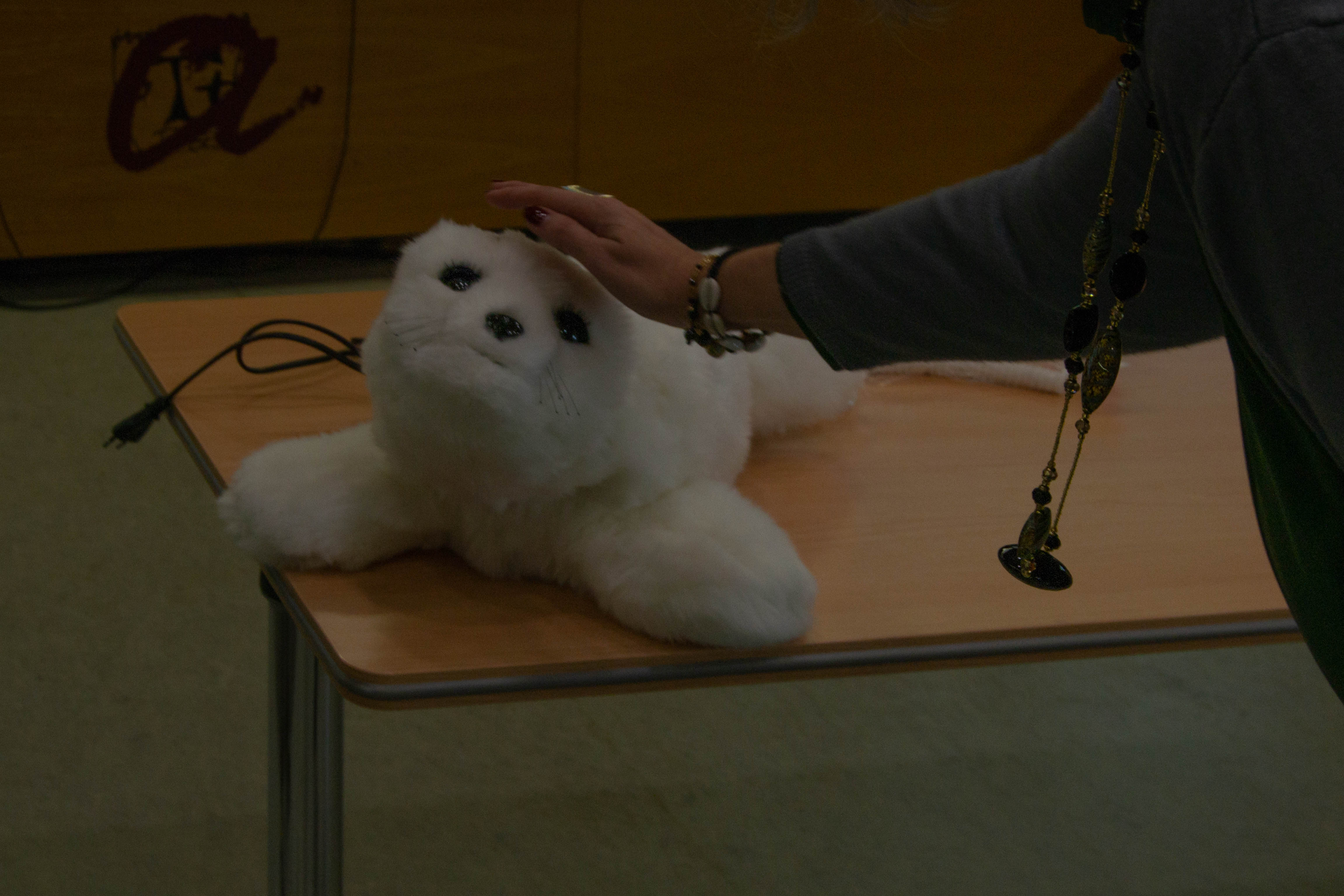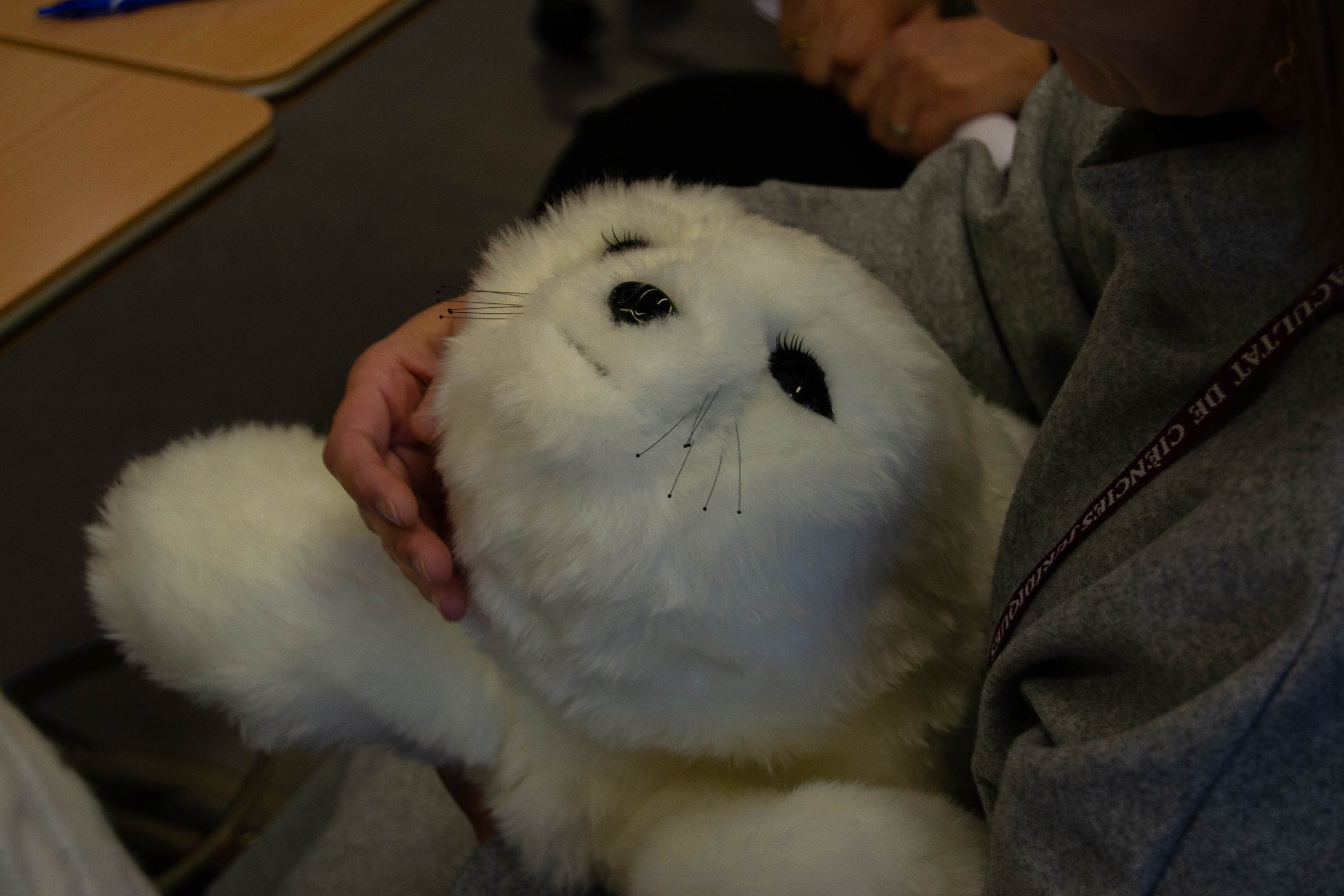-
Kickoff meeting

-
Introducing NUKA
In recent years, social robots have become an attractive tool for therapeutic support. Gradually, they are beginning to enter the care sector, complementing the work of professionals in caring for elderly people with dementia, and accompanying cancer patients in their treatment or children admitted to paediatric wards in hospitals. A prominent example is Nuka, a robot with the appearance of a seal pup, developed by Takanori Shibata of the Intelligent Systems Research Institute in Japan.
In this context, researchers from the URV's Department of Anthropology, Philosophy and Social Work are promoting a research project to evaluate the impact of companion robots on the quality of life of elderly people with dementia, and their environment. Although there are some studies that demonstrate their positive effects in situations of anxiety or aggression, the URV team will study the capacity of the Nuka robot to influence social dynamics and promote the inclusion of people in the community. 'The technological and psychological aspects of robots have been researched in the past, but there is still much to understand about their role as a tool for social inclusion,' says Blanca Deusdad, coordinator of the project together with Fernando Vidal.
The project, called MyRobot, will work with data collected from at least five elderly homes in Catalonia, Valencia, Extremadura and Castilla y León. However, the interest generated by the initiative in its initial stage has led the researchers to consider 'expanding the sample as far as possible'. MyRobot will be developed in collaboration with researchers from other Spanish and international universities and is expected to last until August 2027.
Nuka, the personal assistance robot
Nuka is not just a medical device, but a personal assistance robot designed to interact with users in an empathetic way. It emulates the appearance of a baby seal, as people have normally never interacted with this animal and this makes it easier to accept. 'If it were a dog or a cat, the human brain would already know what they look like and it would not be so easy to connect with the robot; it would be seen as a tool and not as a real animal,' explain the researchers.
'One of the key questions of the project is how Nuka is perceived; is it a device, a pretend animal, or may be perceived as a person?' Deusdad asks. The project will also investigate whether its use changes the user's family and social relationships and will provide information to understand the acceptance processes of advanced technologies in this group.
The use of social robots such as Nuka represents an important step towards more inclusive and humanised care for elderly suffering from dementia and other types of patients. This project seeks not only to document their benefits, but also to establish the ethical and social aspects of their large-scale implementation. In time, they may become indispensable tools in nursing homes and hospitals.



